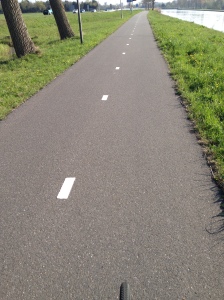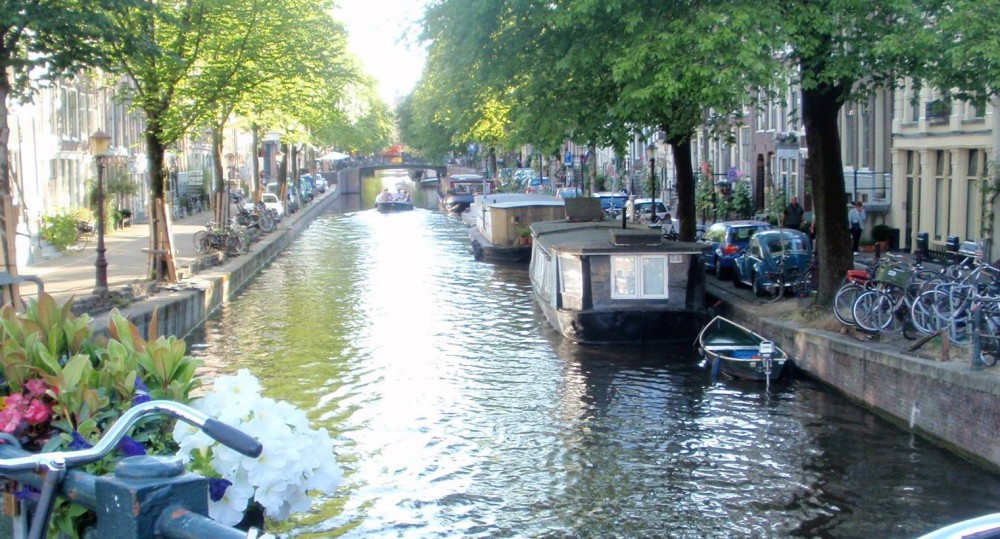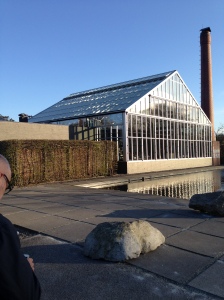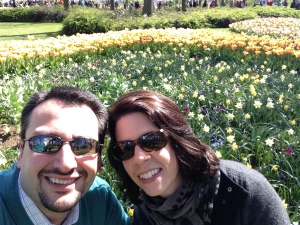There have been a number of milestones in these early months of our relocation: finding an apartment, getting our residency permits, having our first overnight guest.
 One of my personal milestones was to start biking to work. Months ago, when I considered making this move, I would spend time on Google Maps looking at the biking route to my new employer. I’d trace the path of the ferry north across the IJ River, and I’d think about riding alongside the canal, past farms and horses and windmills. From my desk in Boston (in an office located on what was – very literally – a deadly street for cyclists) it seemed pretty close to heaven.
One of my personal milestones was to start biking to work. Months ago, when I considered making this move, I would spend time on Google Maps looking at the biking route to my new employer. I’d trace the path of the ferry north across the IJ River, and I’d think about riding alongside the canal, past farms and horses and windmills. From my desk in Boston (in an office located on what was – very literally – a deadly street for cyclists) it seemed pretty close to heaven.
The winter months are long here, with back-to-back-to-back grey days and lots of wind and rain. But in the past few weeks, the weather has improved and I am happy to say that I have officially started cycling to work! The first day I met a co-worker at the ferry so she could show me the route. Some days we still meet on the ferry, but more often than not I’m alone. From the time I get off the ferry, it’s about a 20 minute ride, and yes, I cycle alongside a canal and pass a windmill. The horses and cows are there, too, and I smell them long before I see them.
I don’t cycle every day – my schedule, my wardrobe and the weather are all taken into consideration. (It is HARD to bike in a skirt or dress, people. I’ve done it, but it is not for amateurs.) But on the days when I do ride, I feel more relaxed, more clear-headed, and more in control of my day.
Normally, about halfway through the trip, when I reach the windmill, a line from a Thomas Lux poem runs through my head: “If whole minutes exist when to your left is a river with ducks and to your right a cathedral slashed with light, then carry clean bandages to a battlefield, swab foreheads in a contagious ward…”
It is a poem about gratitude, about not only recognizing beauty or blessings, but about responding to such things in ways that are meaningful, and even radical. It’s a reminder to me not to take any part of this experience – least of all my commute – for granted. Instead, I should be looking for ways to celebrate the experience and return the beauty and the blessings, somehow.
Since it is still April for a little bit longer, I’ve given you the whole poem below, And, heck, I’ll even throw in a link to Lux’s wonderful Refrigerator, 1957. Enjoy.
Give It To the WindIf the wind touches your cheekin a manner that pleases you,then to it give something back.Give some dollars, a good slice of bread,a phrase from a woman who loves you;open an ampule of joy and wave it, out loud.If you find a dime, then give twoto a beggar, celebratenerve endings, your soup.If whole minutes existwhen to your left is a river with ducksand to your right a cathedral slashed by light,then carry clean bandagesto a battlefield, swab foreheadsin a contagious ward; if a fewcells bloom, a synapse heals,then stab a thousand tiny flagsinto the graves of generals,then mourn a murderer’s childhood.And if, after furious sleep,the room is windyand cool air slides across the blankdunes of your sheet, then thankthe night for the dayand the day for whatit is : liable to be.











